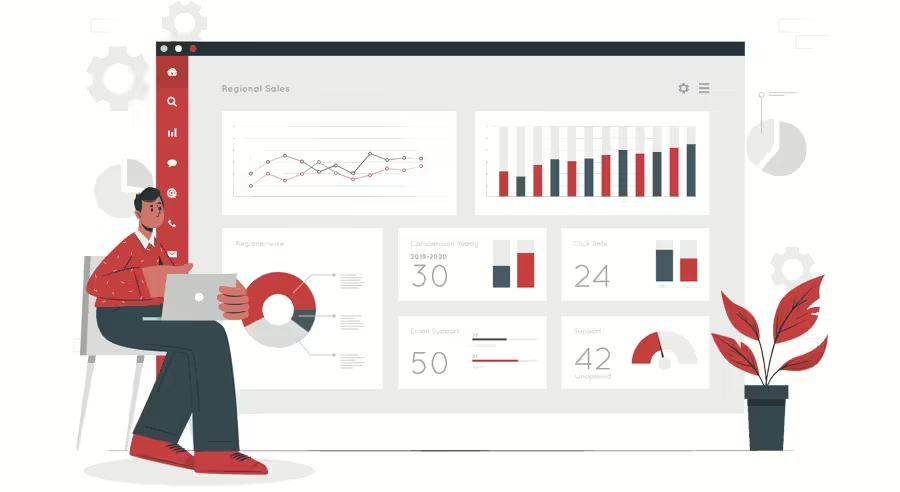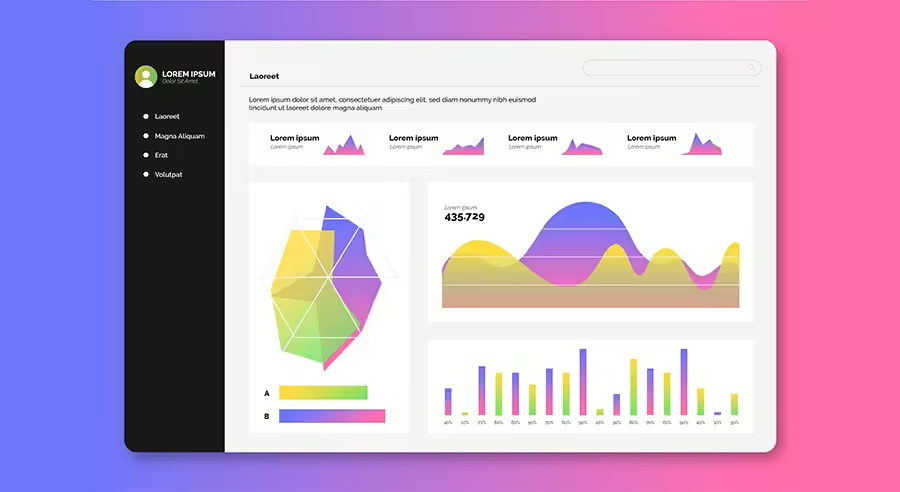Keyword research is an important part of your business growth. Hence, using the right tools that support your research can be helpful.
Take the time to review your keyword strategy and implementation. Refer to the techniques and tools discussed in this blog to improve your rankings in the search results and drive more sales!
Keyword research is the backbone of any search engine optimization (SEO) strategy. It helps you identify the terms your customers are looking for, which enables you to sell your products and services to the targeted audience and improve your SEO marketing strategies.
When you optimize your website with keywords correctly, your website’s ranking in the search results significantly improves. This makes your website easily visible and attracts more customers online.
But before you start your research, you must know how to conduct keyword research using the Google algorithm to expand your eCommerce business.
How To Conduct A Keyword Research?

1. Identify Search Intent
Identifying what customers are looking for won’t help unless you understand the intent behind those search terms.
Depending upon the search intent, there are four types of keywords:
- Navigational: When users want to search a specific site, like Google or Twitter.
- Informational: When users want to learn something or want some information, such as “How to optimize a website.”
- Commercial: When users want to compare products, like searching for the “Best SEO agency.”
- Transactional: When users are looking for a specific product page to make a purchase, like “men’s sports shoes.”
Understanding the user intent is important to identifying the website pages (product pages, category pages, and blog posts) on which to optimize the keyword.
2. Finding The Relevant Keywords
Suppose your online store sells home decor, and you launch a new collection of dining tables; focus on the following factors to select the best keywords:
- Product Details: Select the style, material, and design of the dining table you’re selling, and then use these details to find the “seed keyword.”
- Product Categories: Find the broader categories of your product, such as minimalist decor or boho theme, to target the customers searching for a specific type of home decor.
- Niche: Find your market niche, which, in this case, is home decor or dining tables, and target a broader audience searching for related products.
Using these factors in your keyword research will help you create an effective keyword strategy relevant to your niche and audience, ultimately driving more traffic to your website.
3. Google Autosuggest
Google Autosuggest is the best free keyword research tool for finding highly competitive keywords for your business.
Here is how to use it:
- Open Google browser and go to the search bar.
- Type a relevant word or phrase that aligns with your business.
- Review the suggested search terms list to see what people are searching for.
- Use these terms to refine your keyword list.
If you want to pick informative or commercial keywords, use terms like “do,” “how,” “what,” and “best” on Google search.
4. People Also Ask
Unlike a generic keyword list, Google’s People Also Ask section includes the questions people ask about that specific topic.
This section can help you craft perfect blog titles or FAQs for your product page, making your content a valuable source of information.
When you click on a question mentioned in this section, you get a little peek into how your competitors answer it. This helps you identify the content gap and create better answers.
Here’s how to do your keyword research using People Also Ask:
- Do a Google search and note down all the relevant auto-suggest keywords.
- Explore the related search terms and check the questions in the People Also Ask section.
- Repeat this process, but use a different search term until you get a proper list of keywords.
This method can be time-consuming and repetitive but is an excellent source of keywords. If you want a faster approach, you can use paid tools such as Ahrefs or Semrush.
5. Competitor Analysis
Competitor analysis helps you determine the competitiveness of certain keywords by deciding how your competitors rank for them.
Consider these factors while conducting competitor analysis:
- Keywords: Identify what keywords your competitors are ranking for.
- Backlinks: Check the number of backlinks they have and where they’re using them.
- Content topics: Find what topics they’re writing for, how they’re distributing the keywords, and what you can do to stand out.
This approach not only tells you your position in the market but also highlights areas for improvement.
Best Keyword Research Tools

Semrush
Pricing: Starts at $139.95/month
Semrush provides valuable insights for thorough keyword research, such as site audits, backlink analysis, and competitive analysis. Its extensive keyword database helps you enhance your marketing efforts by better understanding your competition.
Ahrefs
Pricing: Starts at $99/month.
Ahrefs is a powerful SEO tool for thorough backlink analysis, keyword filtering, competitor analysis, and in-depth site auditing. These features help improve your business’s online visibility and increase web traffic.
Google Trends
Pricing: Free
Google Trends helps you track and analyze the popularity of different search queries and topics. It helps businesses gain insights into customer search trends and develop high-quality content with focused marketing strategies.
Keywords Everywhere
Pricing: Starts at $6/month
Keywords Everywhere is an extension that offers valuable keyword insights as you browse. This tool provides valuable data like search volume and cost-per-click, whether you’re exploring search engine results or a website. It helps you collect all significant keyword metrics without interrupting your workflow, making SEO optimization easy.
Google Search Console
Pricing: Free
Google Search Console helps enhance website performance in Google search results. This tool provides valuable data, including search traffic, indexing status, site errors, and security issues. This data boosts a business’s online presence and helps it resolve any issues that hinder its online marketing.
Significant Components Of Keyword Research

Considering these elements in keyword research is crucial to get the most competitive and relevant keywords.
Search Volume
Search Volume refers to the average monthly search for a specific term or phrase. Targeting keywords with high search volume is ideal as it reflects strong user interest in those terms.
However, high search volume creates high competition, making it challenging to rank a site.
While the ideal search volume depends on your website’s needs, keywords with over 20 search volumes are generally preferred.
Keyword Difficulty
Keyword difficulty, also known as SEO difficulty or keyword competition, ranges from 0 to 100, showing how challenging it is for a particular keyword to rank on Google.
A higher score means stronger competition from existing results, which suggests it will be difficult to outrank others.
Your ranking ability is primarily based on the quality and credibility of your website and the content you provide for each keyword you target.
Search Relevance
Search relevance defines how well the results relate to what a user searches for.
How would you feel if you come across a keyword that attracts a load of traffic, yet the search results fail to tell what is on your page or what you are offering?
Those visitors will probably not turn into customers.
Thus, 10 qualified leads brought in through a well-matched search are worth more than 1,000 visitors who immediately leave because they weren’t satisfied with your content.
